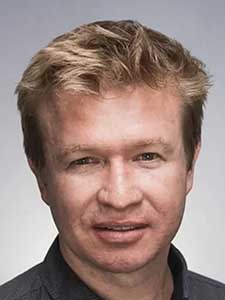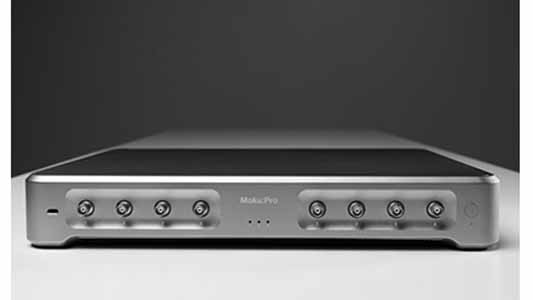Liquid Instruments is growing its overseas team as it continues building innovative new technology and integrates generative AI into its operations.
After outgrowing its Solana Beach headquarters, the startup recently moved into Carmel Valley to create a workshop space in the U.S. and accommodate burgeoning sales, marketing and operations teams.
Liquid Instruments specializes in creating equipment used to design and test technology products, from electronics to telecommunications. “Using the power and flexibility of software, we provide scientists, engineers, professors and students with up to 12 instruments — from test essentials like an oscilloscope and waveform generator to advanced tools like a lock-in amplifier and laser lock box — seamlessly configured on one sleek, compact device,” said CEO Daniel Shaddock.
Its customers span a range of industries like aerospace and defense, automotive, quantum computing, artificial intelligence and machine learning. A few high-profile partners include NASA, Google, Qualcomm, Intel, Lockheed Martin, SLAC National Accelerator Laboratory, CERN European Organization for Nuclear Research, Analog Devices and L3Harris.

In addition to relocating and growing its local headquarters, Liquid Instruments recently expanded its workforce in Australia (where the company was founded) and moved into a new office. Company teams are also spreading into Asia and Europe. “We’ve also hired a new head of Sales and Marketing in India, a new Director of Sales for the U.S., and a U.S.-based Channel Marketing Manager to further expand our leadership across the globe,” added Shaddock. There are more than 60 employees worldwide.
The rapid expansion comes after the company’s $30.4 million Series B funding round last September.
While it’s broadening its reach, it’s also bolstering its series of Moku products – a line of high-tech programmable computer chips that can be completely reconfigured and rewired in a fraction of a second.
“For context, Apple started using them in the iPhone 7,” Shaddock said. “When we founded Liquid Instruments, we knew that [this technology] provided the best platform to merge the world of software with the world of hardware and make a next-generation test and measurement solution greater than the sum of its parts. We realized that we could use [it] to replace bulky, expensive conventional test equipment with an entire suite of software-defined instruments, similar to how the iPhone consolidated many previously separate pieces of technology — a camera, a telephone, a GPS system, and more — into one device with the power and flexibility of software. And just like iPhone apps, our software is instantly upgradable, so users can choose the instruments they need now and add other instruments later.”
Now Liquid Instruments is integrating the generative AI algorithm ChatGPT into its products, allowing its scientists and engineers to reconfigure Moku devices without needing any prior knowledge of digital logic design or programming. “Going back to the iPhone analogy, this is like asking ChatGPT to create a custom app for you…With ChatGPT, engineers and technicians can simply ask the tool to develop complex code that previously would have taken significant time and effort to write,” he explained.
The company thinks another benefit of ChatGPT integration is the democratization of test and measurement for users. “We believe that scientific and engineering breakthroughs can come from anyone — regardless of experience or where they are located — and our goal is to continue increasing that likelihood by making our products more accessible and intuitive for users of all backgrounds,” added Shaddock.
Looking into the near future, Liquid Instruments plans to continue growing its team and expects to release its next batch of software upgrades sometime this summer. “We’re grateful to contribute to the success of the technology sector in San Diego, and we look forward to generating more innovative ideas, building more world-changing technology and continuing to create an exciting workplace for San Diego’s brightest minds to join.”











